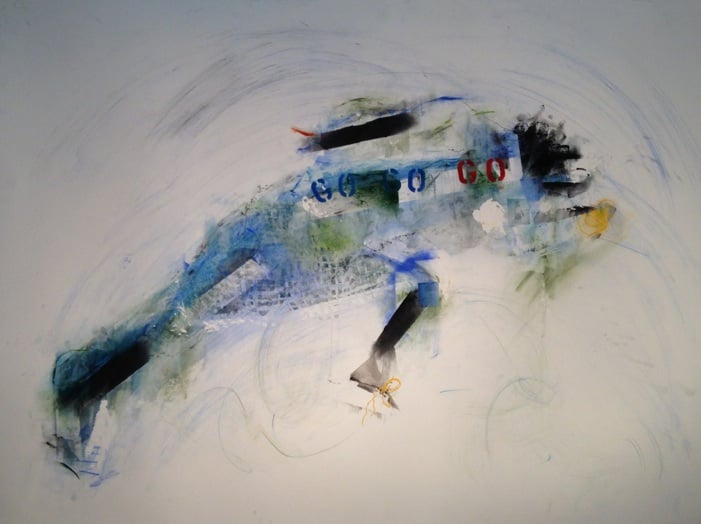Art & Exhibitions
Boko Haram’s Kidnapped Schoolgirls Inspire Exhibition


Sarah Cascone

Brooklyn artist Mary Mihelic is honoring school girls kidnapped by Nigerian Islamist militant group Boko Haram. An upcoming show features works inspired by the 53 girls who successfully evaded capture when Boko Haram kidnapped 276 of their classmates in Chibok last spring. Titled “53 Running Girls,” the series features 28 works to date, and will eventually include one piece for each of the escapees.
Boko Haram claims to have taken the schoolgirls to put an end to their non-Islamic education (the militant group’s name literally translates to “Western education is forbidden”). In the aftermath of the abduction, social media seized on the #BringBackOurGirls hashtag, but the tragedy has faded from Western public consciousness in the months since, perhaps due to the failure of rescue efforts.
Boko Haram’s bloody campaign for control of the African nation continued this weekend, with the group taking hold of the city of Mongano and attacking the city of Maiduguri. Earlier this month, Boko Haram slaughtered the citizens of Baga in an attack whose death toll is estimated at up to 2,000. Even amid the turmoil, there are glimmers of an art scene in the strife-torn country (see Amidst Violence, New Art Gallery in Nigeria’s Port Harcourt). Other artists have also responded to the crime, like photographer Glenna Gordon, who documented the missing girls’ personal belongings (see Artist’s Photos Put Face to Missing Nigerian Schoolgirls).
Mihelic’s exhibit, at Gallery Bergen, at Bergen Community College in Paramus, New Jersey, opens February 17 and will run through March. “The art is about that split-second decision when a person decides to run,” the artist wrote on the Broad Side.
A graduate of an all-girls high school, Mihelic began the series with a simple drawing of a girl in a school uniform. That running girl became a symbol of all the freedoms enjoyed by women in the West, by contrast to the stark realities of life for the schoolgirls of Chibok.
The works “are a way to remind everyone that we just can’t give up on these kidnapped girls,” Mihelic added in an e-mail to artnet News. “We are coming up on the one-year anniversary of the kidnappings [on April 15] and the situation is only getting worse.”
Through the series, Mihelic explained, she hopes to push audiences to consider how the hot-button issues of “war under the guise of religion, religious freedom, global feminism, and education for women” are connected to Boko Haram’s crimes.